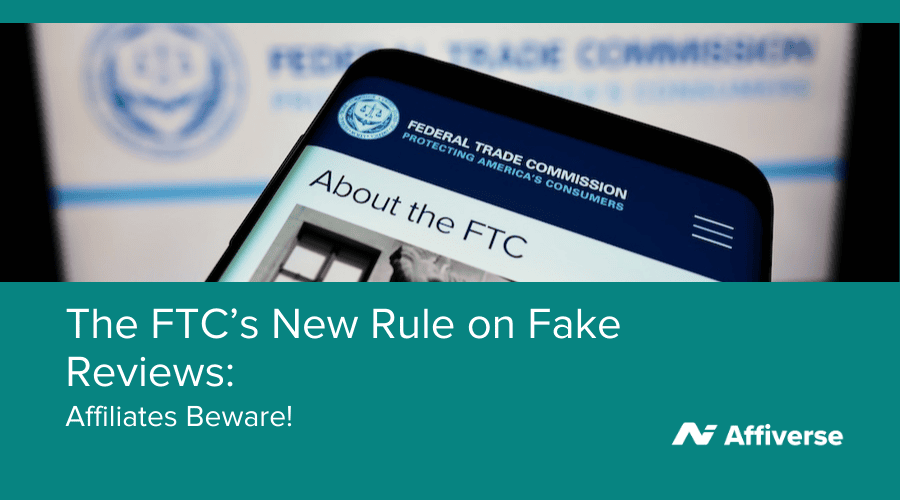The Federal Trade Commission (FTC) recently announced a final rule to crack down on fake consumer reviews and testimonials. This rule is part of a broader effort to ensure that online reviews remain trustworthy and authentic. For digital marketers and affiliates, this rule is not just another regulation to be aware of—it’s a game-changer that could reshape the way businesses approach online marketing.
In this post, we’ll explore what this new rule means, why it’s crucial for the digital marketing industry, and how affiliates can navigate this evolving landscape.
The Rise of Fake Reviews: A Growing Problem
Online reviews have become a vital part of the purchasing process. Before making a decision, many consumers check reviews to gauge the quality of a product or service. This reliance on reviews has led to the growth of a multi-billion-dollar industry, with businesses investing heavily in their online reputation.
However, this has also given rise to a darker side: fake reviews. These are reviews that are either paid for or manipulated to give a false impression of a product. Some companies have even gone as far as creating fake customer profiles to post glowing testimonials or hiring agencies to flood review sites with positive feedback. This practice is misleading and unfair, both to consumers and to honest businesses.
The FTC’s new rule aims to put an end to these deceptive practices.
What the FTC’s Final Rule Entails
The FTC’s final rule against fake reviews is comprehensive. It prohibits several deceptive practices, including:
- Posting fake reviews: This includes paying for positive reviews or creating fake profiles to post them.
- Suppressing negative reviews: Businesses can no longer selectively display positive reviews while hiding negative ones.
- Misleading testimonials: The rule also targets testimonials that are misleading, such as those that exaggerate the results of using a product.
The penalties for violating this rule are severe. Companies found to be engaging in these practices could face substantial fines, and repeat offenders might face even stiffer penalties.
Why This Rule Matters for Digital Marketers
For digital marketers, this rule is a wake-up call. Trust is the currency of the digital world, and fake reviews undermine that trust. When consumers can’t rely on reviews, it damages the credibility of the entire online ecosystem. This rule is a step towards restoring that trust.
Moreover, this rule forces businesses to rethink their strategies. Instead of relying on shortcuts like fake reviews, companies will need to focus on providing real value to their customers. This could lead to a more authentic and transparent marketplace, where quality products rise to the top based on genuine customer feedback.
The Impact on Affiliates
Affiliates play a crucial role in digital marketing. They promote products and earn commissions based on sales generated through their efforts. Given their influence, affiliates need to be particularly mindful of this new rule.
Transparency is Key
Affiliates must ensure that any reviews or testimonials they share are honest and transparent. If you’re promoting a product, you need to have genuinely used it and be able to vouch for its quality. Misleading your audience with fake or exaggerated claims can now result in serious consequences, not just for the business you’re promoting, but for your reputation as well.
Building Trust with Your Audience
As an affiliate, your success depends on the trust you build with your audience. If your followers believe that you’re being honest and transparent, they’re more likely to make purchases based on your recommendations. This new rule emphasises the importance of maintaining that trust by ensuring that all your content is authentic.
Long-Term Benefits
While this rule might seem restrictive at first, it actually presents an opportunity for affiliates. By aligning with the FTC’s guidelines, affiliates can distinguish themselves as trustworthy sources of information. In a marketplace flooded with misinformation, being a reliable voice can set you apart and lead to long-term success.
Moving Forward: Embrace Authenticity
The FTC’s final rule on fake reviews is a significant development in the world of digital marketing. It signals a shift towards greater transparency and authenticity, which can only be a good thing for consumers and honest businesses alike.
For digital marketers and affiliates, this rule is a reminder that there are no shortcuts to building trust. The best way to succeed in the long run is to be authentic, transparent, and genuinely helpful to your audience.
As the digital landscape continues to evolve, embracing these principles will not only keep you on the right side of the law but also ensure that you build a loyal and trusting customer base. In a world where trust is increasingly scarce, that’s a priceless advantage.




















